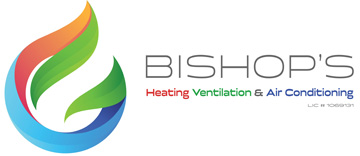
We spend a lot of time in our homes. As a matter of fact, the Environmental Protection Agency (EPA) has determined being inside comprises 90% of our time. Although, the EPA also has found your indoor air can be three to five times more polluted than outdoors.
That’s since our houses are tightly sealed to boost energy efficiency. While this is fantastic for your utility costs, it’s not so fantastic if you’re amid the 40% of the population with respiratory allergies.
When outdoors ventilation is limited, pollutants including dust and volatile organic compounds (VOCs) may get captured. As a consequence, these pollutants may aggravate your allergies.
You can improve your indoor air quality with clean air and routine housework and vacuuming. But if you’re still having issues with symptoms when you’re at your house, an air purifier may be able to provide assistance.
While it can’t eliminate pollutants that have settled on your furnishings or flooring, it could help purify the air traveling around your home.
And air purification has also been scientifically proven to help reduce some allergic symptoms, according to the American College of Allergy, Asthma and Immunology. It might also be helpful if you or someone in your household has a lung condition, such as emphysema or COPD.
There are two kinds, a portable air purifier or a whole-home air purifier. We’ll go over the differences so you can figure out what’s appropriate for your home.
Whole-House Air Purifier vs. Portable Air Purifiers
A portable air purifier is for a single room. A whole-house air purifier accompanies your home comfort system to purify your full home. Some types can clean independent when your HVAC system isn’t on.
What’s the Best Air Purifier for Allergies?
Go after a model with a High Efficiency Particulate Air (HEPA) filter. HEPA filters are used in hospitals and deliver the best filtration you can find, as they eliminate 99.97% of particles in the air.
HEPA filters are even more powerful when installed with an ultraviolet (UV) germicidal light. This dynamic combination can wipe out dust, dander, pollen and mold, all of which are standard allergens. For the best in air purification, think over a unit that also has a carbon-based filter to decrease household smells.
Avoid buying an air purifier that creates ozone, which is the top ingredient in smog. The EPA cautions ozone could worsen respiratory troubles, even when emitted at minor amounts.
The Allergy and Asthma Foundation of America has compiled a listing of questions to ask when purchasing an air purifier.
- What can this purifier extract from the air? What doesn’t it take out?
- What’s its clean air delivery rate? (A bigger figure means air will be cleaned more quickly.)
- How often does the filter or UV bulb need to be replaced]? Can I finish that on my own?
- How much do replacement filters or bulbs cost?
How to Lessen Seasonal Allergy Symptoms
Want to get the {top|most excellent|best] results from your new air purification equipment? The Mayo Clinic recommends taking other procedures to reduce your exposure to seasonal allergy triggers.
- Stay indoors and keep windows and doors closed when pollen counts are heightened.
- Have other household members cut the lawn or pull weeds, since these tasks can worsen symptoms. If you are required to do these chores yourself, you may want to consider using a pollen mask. You should also bathe without delay and put on clean clothes once you’re done.
- Avoid hanging laundry outside your home.
- Run your air conditioner while at home or while in the car. Consider using a high efficiency air filter in your house’s home comfort unit.
- Equalize your house’s humidity saturation with a whole-house dehumidifier.
- Hardwood, tile or linoleum are the ideal flooring materials for lowering indoor allergens. If your residence has carpet, install a HEPA filter on your vacuum cleaner.
Let Our Specialists Take Care of Your Indoor Air Quality Needs
Want to progress with getting a whole-house air purifier? Give our professionals a call at 916-591-6889 or contact us online to schedule an appointment. We’ll help you find the right system for your house and budget.
